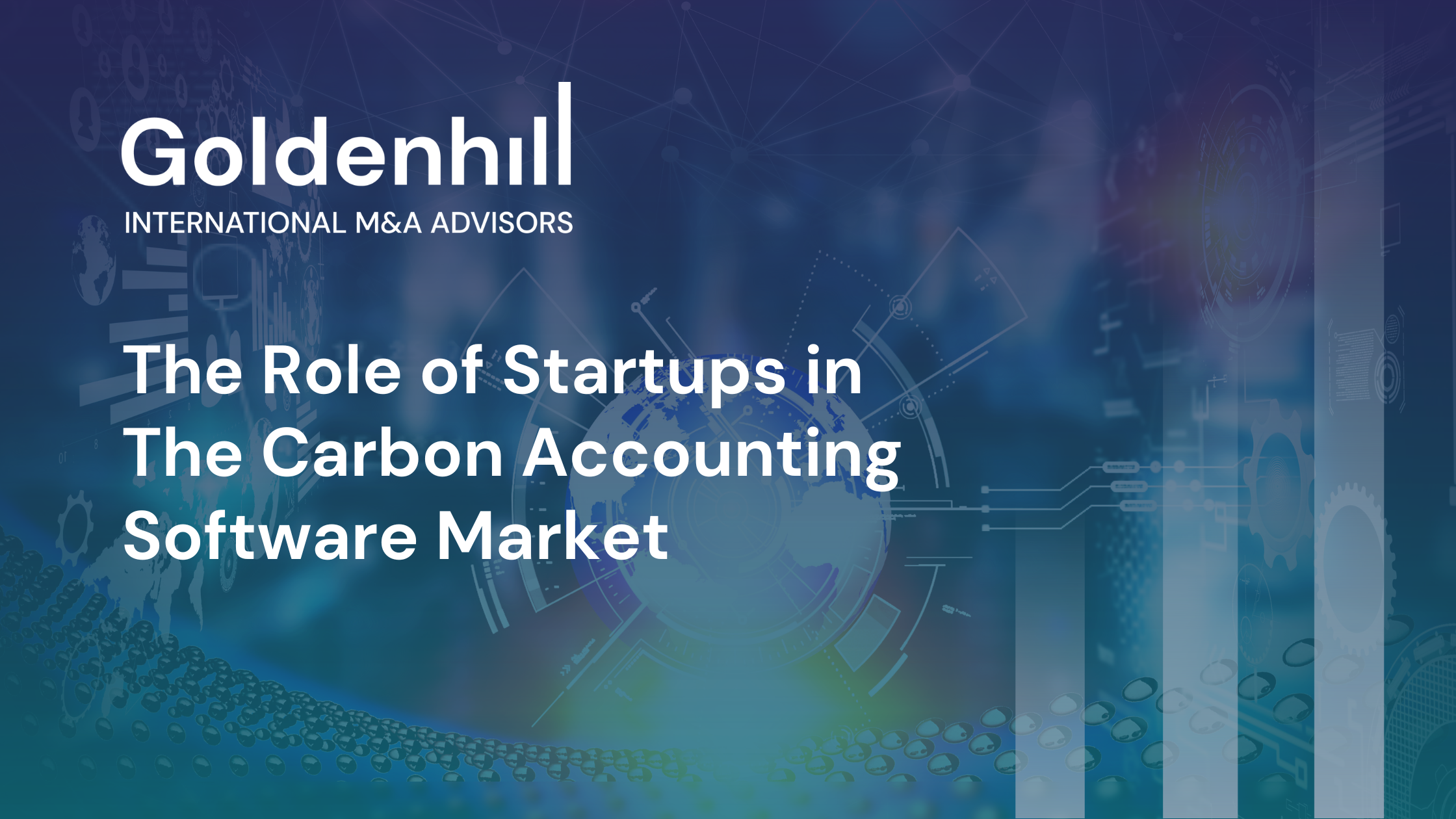
The Role of Startups in the Carbon Accounting Software Market
In today’s world, businesses face unprecedented pressure to address their environmental impact, especially concerning carbon emissions. Customers, investors, employees, and regulators are increasingly demanding a commitment to sustainability and adherence to Environmental, Social, and Governance (ESG) rules.
The central question is no longer “why” businesses should focus on sustainability, but rather “how” they can achieve a profitable, sustainable, and low-carbon transformation.
Companies are increasingly recognising the importance of integrating carbon accounting into their operations, and this has led to a growing trend of mergers and acquisitions involving businesses specialising in carbon accounting software.
The Urgent Need for Change
The pressure on businesses to address their environmental impact has never been more intense. Stakeholders, including customers, investors, employees, and regulators, are demanding tangible commitments to sustainability. The emphasis on ESG rules is reshaping corporate priorities, prompting a fundamental shift in how businesses approach their ecological footprint.
The rules and approaches used to calculate emissions often lack accuracy, granularity, and comparability. The reliance on spreadsheets and semi-automated tools that use estimates and averages for carbon footprints is no longer sufficient.
The solution lies in redefining ‘resource’ in enterprise resource planning (ERP) and expanding the understanding of resources beyond financials. Companies must begin treating carbon like money and managing sustainability data with the same rigor as financial data.
The introduction of transactional carbon accounting is crucial in this paradigm shift. This approach considers real, measured, and credible emissions data that is auditable, transparent, and as reliable as financial accounting. Lloyd’s, a renowned insurance and reinsurance marketplace and Moody’s analytics recently forged a new partnership in carbon accounting, with an aim of setting the gold standard in GHG emissions, especially for underwriting and investment portfolios.
Drivers Behind M&A Activity in Carbon Accounting
-
Market Leadership:
Companies seeking to establish themselves as leaders in sustainability are actively pursuing acquisitions to gain a competitive edge. Owning cutting-edge carbon accounting technology positions them as industry pioneers.
-
Comprehensive Sustainability Offerings:
Merging with or acquiring a carbon accounting software business allows companies to offer end-to-end sustainability solutions. This comprehensive approach aligns with market demands for holistic environmental management.
-
Meeting Stakeholder Expectations:
Stakeholders, including investors and customers, increasingly expect companies to not just comply with environmental regulations but to go above and beyond. M&A activities centred around carbon accounting demonstrate a commitment to exceeding these expectations.
William Berrington, ESG M&A Advisor at Goldenhill International says:
As companies navigate the complexities of carbon accounting, M&A activities focused on acquiring or merging with specialised software businesses are set to define the future of sustainable business practices.
M&A Boom in Carbon Software Market
The escalating demand for greater transparency in carbon impact reporting is driving the emergence of a vibrant ecosystem of start-ups. These innovators aim to assist companies in adapting to evolving carbon reporting requirements, and investors are taking notice.
2022 witnessed a staggering $2.9 billion in funding for climate fintech start-ups, with a substantial portion, $970 million, allocated to carbon accounting—a testament to the industry’s unprecedented growth.
Carbon-related regulations are on the rise globally, prompting stricter disclosure requirements and reporting standards for emissions. Initiatives like the EU’s Corporate Sustainability Reporting Directive (CSRD) and the UK’s Streamlined Energy and Carbon Reporting (SECR) policy underscore the shift from considering carbon accounting as a “nice to have” to an essential business practice.
The Role of Start-ups in Regulatory Compliance
To navigate the complex landscape of carbon reporting, start-ups are developing solutions to support companies in meeting regulatory demands. Greenly, based in France, offers a Legislation Checker to assist companies in verifying their legal obligations and achieving compliance with initiatives like the Science Based Targets initiative (SBTi) and CSRD.
In the US, nZero provides tailored, audit-ready data compliant with SEC and EU regulations. Normative, another player in the field, utilises over 30 million data points to calculate a company’s emissions and facilitates compliance-ready data exportation.
The $60 Billion Market Opportunity
Carbon accounting, involving the categorisation and measurement of emissions in three scopes, presents a market opportunity projected to surpass $60 billion by 2030. Start-ups are simplifying carbon accounting, offering automation, data analysis, and domain expertise to make it accessible to businesses of all sizes.
Start-ups like Sinai are automating carbon analysis and reporting, offering financial models for assessing internal carbon pricing and setting emission targets. Additionally, new players in the market, such as CarbonFuture, are contributing to the $50 billion carbon credit market expected by 2030. Digital marketplaces for transparent and secure trading of carbon certificates, as offered by CarbonFuture, reflect the rising importance of carbon markets.
Book a Consultation with Us
As carbon markets mature and regulations proliferate, companies are compelled to account for their carbon emissions to remain compliant and competitive.
If you are looking to explore a potential sales process in the carbon accounting software market, then book a consultation with one of our specialist ESG M&A Advisors here.
Author: William Berrington
Partner
Highly experienced M&A advisor with a particular emphasis on ESG and HR Technology globally; assignments include working with leading businesses in ESG (Environmental, Social and Governance) software and data and HR Technology (HRTech).
William has advised on technology sector M&A transactions in more than 12 countries, working on transactions on the sell-side and buy-side. A Chartered Accountant by background, he held corporate development roles at several blue-chip technology companies and also worked for a private markets firm before joining Goldenhill.
If you are an owner or senior executive of a technology business interested in discussing how M&A could help you accomplish your objectives – please get in touch.
